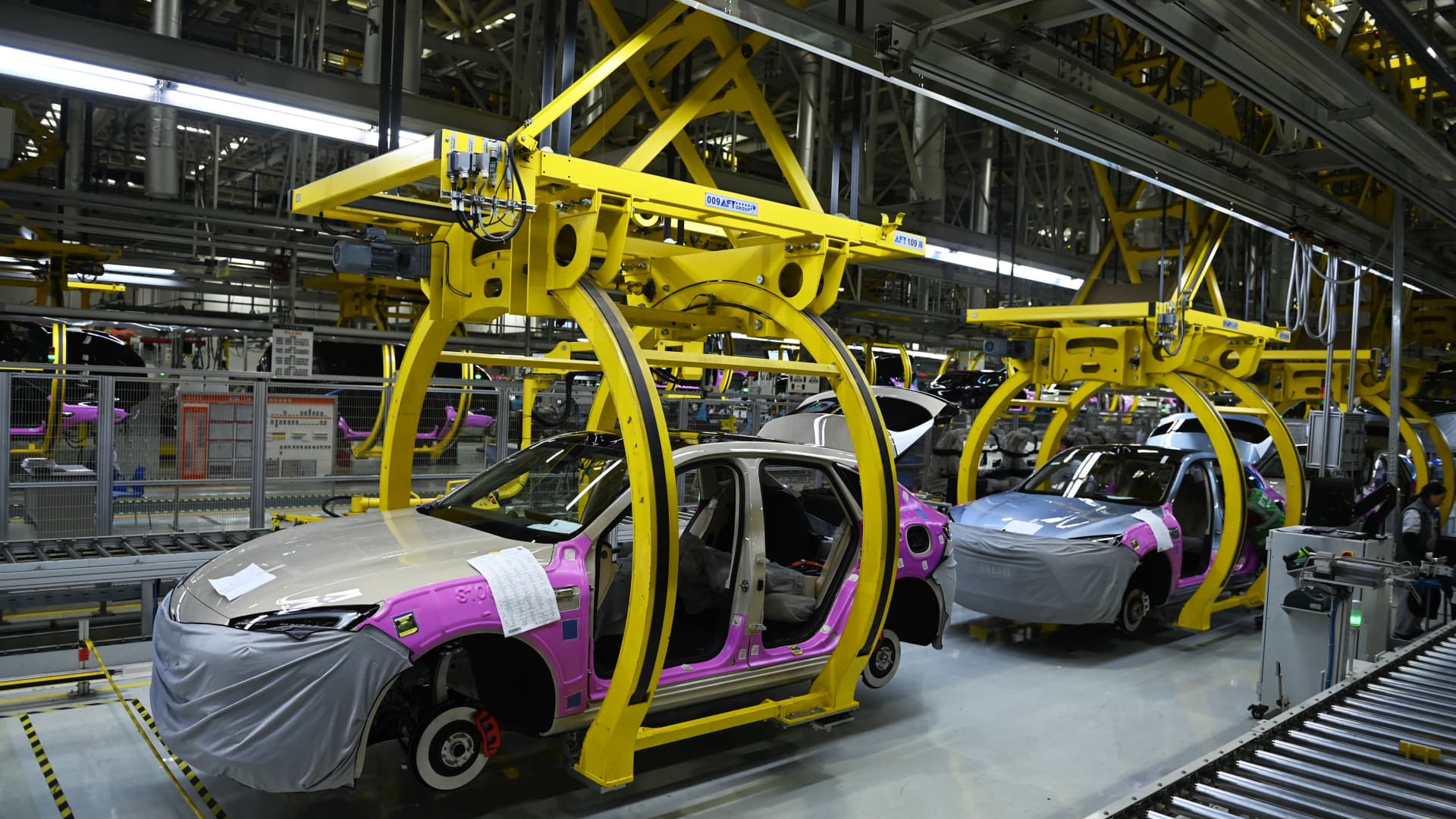Huawei’s Aito electric cars are manufactured by Seres in Chongqing, China.
China News Service | China News Service | Getty Images
BEIJING — China revealed this week it aims to spend more than a billion dollars to bolster manufacturing and domestic tech in a bid to remain globally competitive, while divulging little new support for the struggling real estate market.
Industrial support clearly ranked first on Beijing’s priority list for the year ahead, according to three major plans released this week as part of China’s annual parliamentary meetings.
One of those reports, from the Ministry of Finance, said the central government would allocate 10.4 billion yuan ($1.45 billion) “to rebuild industrial foundations and promote high-quality development of the manufacturing sector.”
While that’s down from the 13.3 billion yuan earmarked for the same category last year, the sector overall gained greater prominence. In 2023, plans to spend on industrial development came second to support for consumption.
“Unlike other economies that went through a wrenching adjustment in their housing market, China’s investment rate isn’t falling,” HSBC’s chief Asia economist Frederic Neumann and a team said in a report Friday. “Instead, [capital expenditure] is shifting towards infrastructure and, importantly, manufacturing.”
They noted how the shift “cushions the impact of a deflating property market on growth,” but also bears the same risk as over-investment in property.
“Unless demand keeps pace with investment, and does sustainably so, a harsh adjustment ultimately beckons,” HSBC economists said.
Chinese authorities in 2020 intensified a crackdown on real estate developers’ high reliance on debt for growth. Property sales have since plunged while developers have run out of money to finish many projects, cutting into what was once about 25% of China’s GDP when including related sectors such as construction.
UBS analysts late last year estimated property now accounts for about 22% of the…
Read the full article here

Leave a Reply